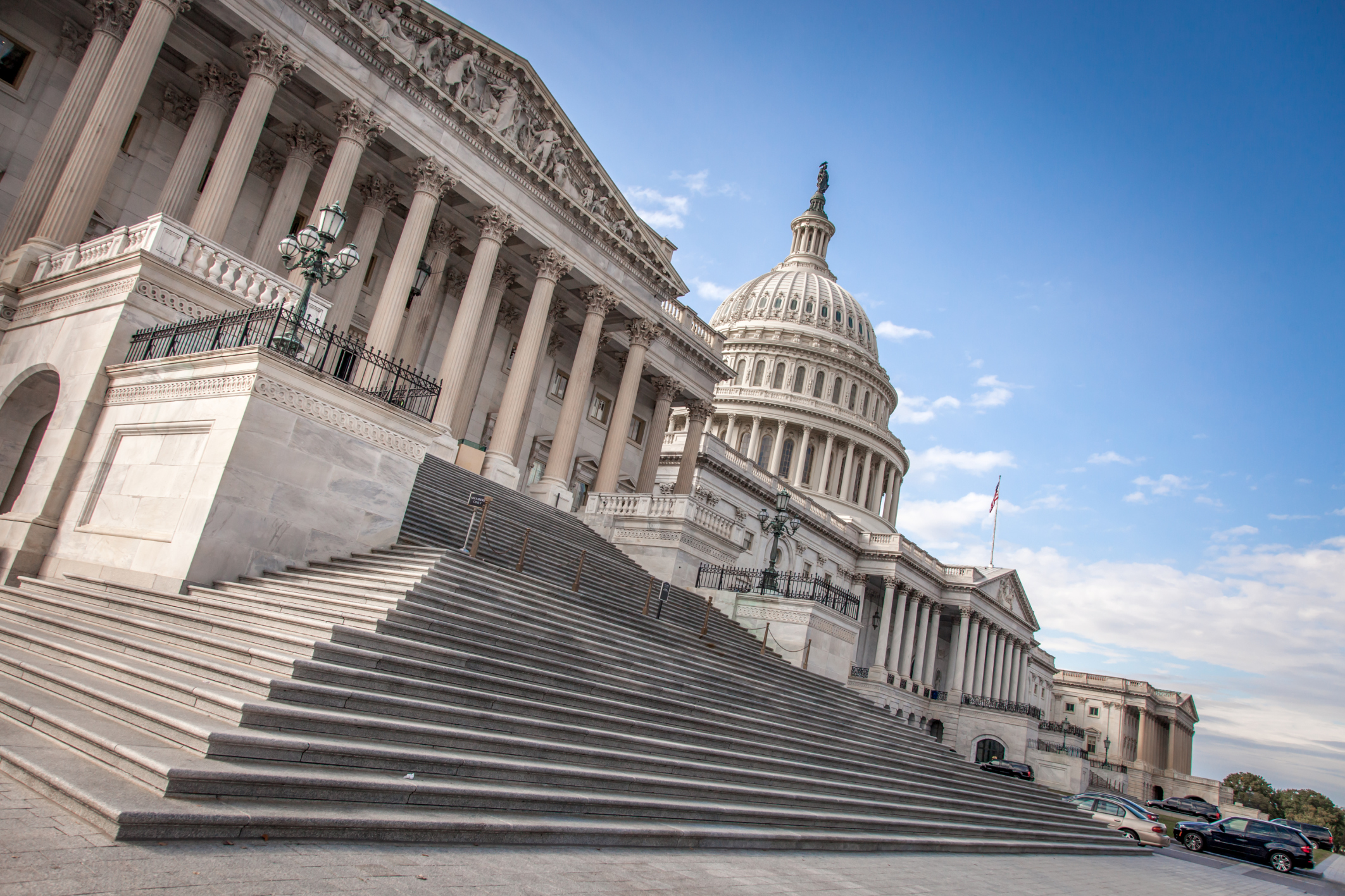
Recent proposed legislation may weaken key regulatory and law enforcement mechanisms.
Buried deep in the 155-page House Republican budget resolution is a coded manifesto for conservative political and corporate attacks on our modern system of federal regulation. Over 20 “policy statements” summarize the core features of recent Republican legislation targeting federal safeguards, the rulemaking process, law enforcement, as well as the longstanding operation of federal administrative law.
Like any attempted manifesto, the policies ring with rhetoric extolling sensible and soothing values, such as economic growth, job creation, and the protection of lower income households. But behind the rhetoric lies a legislative agenda that attempts a roots-and-branches upheaval and dismantling of a system of federal regulation that has worked for decades to protect clean air, clean water, food safety, financial markets, workers, consumers, and all Americans.
The actual bills behind the manifesto:
- weaken and delay federal safeguards;
- tailor regulations to impose the least costs on corporations even if that denies Americans vastly higher net benefits;
- adopt a one-house legislative veto to block regulations and obstruct executive branch law enforcement;
- stop federal agencies from using the best peer-reviewed science to better protect Americans’ health and environment;
- adopt a mindless “cut-go” system to eliminate an existing regulation for every new one adopted; and
- undermine citizens’ ability to hold government accountable when it breaks the law, and obstruct enforcement of important federal safeguards.
It is not hard to spot these bills: the Regulatory Accountability Act; the Regulations of the Executive in Need of Scrutiny Act (REINS); the Secret Science Reform Act; the Searching for and Cutting Regulations that are Unnecessarily Burdensome Act; and the Sunshine for Regulatory Decrees and Settlements Act, among others.
Thomas Mann at the Brookings Institution and Norman Ornstein at the American Enterprise Institute have aptly described the mentality and set of behaviors underlying this legislative agenda as: “ideologically extreme; scornful of compromise; unmoved by conventional understanding of facts, evidence and science; and dismissive of the legitimacy of its political opposition.”
Mann and Ornstein lay partial blame for this political situation on former Representative Newt Gingrich and the “Republican Revolution” of 1994. And while the Gingrich Congress adopted the Congressional Review Act, today’s anti-regulatory soldiers in the revolution are pushing the far more radical REINS Act.
REINS Act backers often describe the bill’s attack on federal regulations and separation-of-powers as a new idea conceived by a hard scrabble Kentucky Tea Party activist, Lloyd Rogers; former Representative Geoff Davis told that story when he introduced REINS. In fact, the bill’s extreme approach to interfering with executive branch enforcement of the law long has been a darling of conservative think tanks. Then-professor Antonin Scalia highlighted the approach in a 1981 article in the Cato Institute’s Regulation, correctly characterizing it as a one-house congressional veto.
Although these attacks on the modern regulatory state have been longstanding and persistent, the Republicans have mounted a full-frontal assault on the nation’s bedrock environmental and health laws since they took over the House in 2010.
Minority staff for the House Energy and Commerce Committee issued a report that cataloged 553 votes by the Republican majority to weaken environmental and health safeguards during the 112th and 113th Congresses. Predictably, these attacks failed in the Senate, in part because the environmental and health safeguards are popular with Americans. The Democratic-controlled Senate had no interest in such attacks for some portion of that time, and the President repeatedly threatened to veto the bills.
Facing repeated failure with direct attacks on substantive laws, the conservative congressional response turned to undermining the backbone legal principles of the modern administrative state.
The latest roots-and-branches political attack targets the longstanding Chevron doctrine, in which courts defer to permissible agency interpretations of ambiguous statutory language. Senator James Lankford (R-Okla.) is co-sponsoring the Separation of Powers Restoration Act, which would amend federal law to “clarify that courts ‘may not defer to an agency interpretation of a statutory provision or rule.’” Perhaps Lankford’s real (but shortsighted) objection is to the current administration’s interpretation of the Clean Water Act—which presumably differs from the Senator’s own preferred interpretation and which he cites as a justification for his bill.
Similarly, what was the conservative congressional response to the inability to overturn national health standards for particulate matter air pollution? Deny the harmfulness of particulate matter pollution and vote to authorize subpoenas to the American Cancer Society and Harvard University seeking confidential patient data underlying the studies showing fine particles to be deadly. The companion House Secret Science Reform Act sought to require studies containing confidential patient data be made public, while at the same time essentially exempting industry from these same disclosure requirements. If passed, this bill would essentially make it impossible for the U.S. Environmental Protection Agency (EPA) and other government agencies to use proprietary models or rely on numerous peer-reviewed health studies to protect the public. Of course, perhaps that was the goal of Republicans all along.
Congressional Republicans also take aim at the process by which administrative agencies settle disputes in courts, in order to block or slow agency steps to rectify violations of statutory deadlines set by Congress. Again, under the mantle of “increased transparency,” Republicans have introduced the Sunshine for Regulatory Decrees and Settlements Act, targeting alleged “collusion” between government actors and private citizens and advocacy groups, in settling disputes.
Despite a complete lack of evidence that this sort of collusion occurs, congressional Republicans offer as a “solution” that industry groups should be allowed to participate in and indefinitely delay what were previously confidential settlement negotiations between the government and other parties. The immediate effect of such bills is to undermine the legal rights of citizens to hold their government accountable when it breaks the law. But the real congressional agenda here is to obstruct enforcement of health, safety, and environmental laws that the bills’ sponsors lack the votes to amend directly through regular order.
As such, this bill joins other glaring examples of political subversion. Having failed so far to weaken substantive laws they detest, anti-regulatory politicians have retreated to methodical attacks on the legal infrastructure backing federal regulations: manipulating cost-benefit analysis, the legal norms governing regulation, the scientific process, when Congress may veto regulations, and the power of the courts to redress harms suffered by citizens. The anti-regulatory agenda is the product of the hyper-ideological, uncompromising anger that Mann and Ornstein have identified.
As I was writing this essay, I heard a member of Congress wonder aloud in a hearing, “Why do we even need an EPA?” Apart from the painfully obvious reason—namely, multiple congressional laws task EPA with implementing and enforcing federal environmental laws—the answer is that most Americans think having EPA is a good thing, not the subject of a cringe-inducing rhetorical question.
Congratulations on The Regulatory Review’s fifth anniversary. May the publication continue to provide a thoughtful forum for discussing responsible regulation, since that role is not being fulfilled by everyone in Congress these days.
This essay is part of The Regulatory Review’s sixteen-part series, RegBlog@5.




